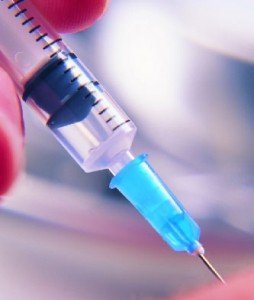The world’s first malaria vaccine could be approved for use in 2015, experts say.
Reporting in PLOS Medicine, researchers found that for every 1,000 children who received the vaccine, an average of 800 cases of illness could be prevented.
In continuing trials it went on to provide protection some 18 months after the injections were given.
GlaxoSmithKline have now applied for regulatory approval – making this the first vaccine to reach this step.
Malaria affects millions of people worldwide and results in 800,000 deaths each year – the majority in children under five who live in sub-Saharan Africa.

In the most advanced trial to date, involving several African countries, 1,500 infants and children were given the RTS,S vaccine.
Revisiting them 18 months after the last injection, researchers found that in young children the vaccine almost halved the number of cases of malaria.
For infants, who were aged six to 12 weeks at first vaccination, the drug reduced episodes of malaria by a quarter.
Though the effectiveness of the vaccine was seen to wane over time, the report suggests it may have the largest impact in areas with high rates of disease.
For example, in some Kenyan cities, 2,000 cases of clinical malaria were prevented for every 1,000 children who received the drug (people in this area are at risk of repeated infections).
GSK has now asked the European Medicine’s Authority to approve it for global use.
The drug-makers say together with other preventative measures such as bed nets and insecticides, this could represent a huge step forward in malaria control.
Scientists are investigating whether a booster could further improve the chances of success.
GSK is developing RTS,S with the non-profit Path Malaria Vaccine Initiative, supported by funding from the Bill & Melinda Gates Foundation.
